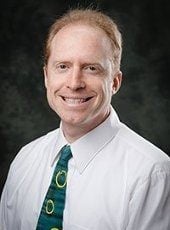
Joshua Pearce (MSE/ECE) gave an invited talk on “How to Eviscerate Lab Costs: Advances in Materials, Electronics and 3-D Printing for Scientific Equipment” for the Industrial Engineering program at the University of Trento, Trento Italy, last Wednesday, (Feb. 21, 2018).
Notables
Red Hat, a $2.9 billion per year open-source software company, honored Joshua Pearce (MSE/ECE) as one of eight instructors globally who champion open source education. Read more here.
 I am delighted and excited to announce the launch of a new venture in the Department of Electrical and Computer Engineering at Michigan Tech. In September 2018, the ECE Department, in partnership with the online education support company
I am delighted and excited to announce the launch of a new venture in the Department of Electrical and Computer Engineering at Michigan Tech. In September 2018, the ECE Department, in partnership with the online education support company  Last week I made a short trip down to SW Michigan, to visit some of our industrial partners, and to pay visits to some old friends and new colleagues. It was my first time in that part of the state and I enjoyed it thoroughly.
Last week I made a short trip down to SW Michigan, to visit some of our industrial partners, and to pay visits to some old friends and new colleagues. It was my first time in that part of the state and I enjoyed it thoroughly.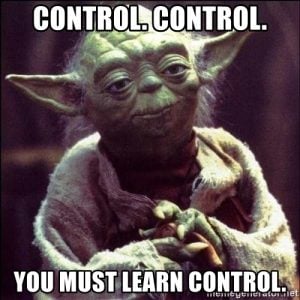 My automobile experience was only one of several times on this trip when I was reminded about the opportunities for electrical engineers in the area of controls. The industrial partners I visited confirmed for me what I have seen and heard many times before at Career Fair and with our External Advisory Committee, that automation is everywhere and that electrical engineers who have controls expertise are in high demand. This is one of the reasons we took our controls course in the EE curriculum, moved it to the junior level, and made it a required course. This is a good time to be studying electrical engineering and entering the job market, and graduates who can claim some expertise and experience with control systems will find many more doors opening up.
My automobile experience was only one of several times on this trip when I was reminded about the opportunities for electrical engineers in the area of controls. The industrial partners I visited confirmed for me what I have seen and heard many times before at Career Fair and with our External Advisory Committee, that automation is everywhere and that electrical engineers who have controls expertise are in high demand. This is one of the reasons we took our controls course in the EE curriculum, moved it to the junior level, and made it a required course. This is a good time to be studying electrical engineering and entering the job market, and graduates who can claim some expertise and experience with control systems will find many more doors opening up.
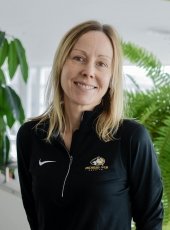
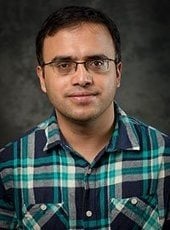
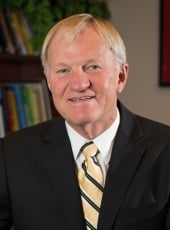
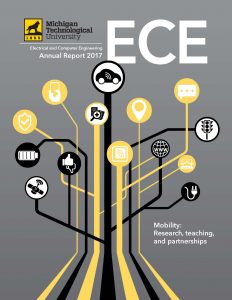
 One of the widespread truisms found throughout current thought on management and organizations is that silos are really horrible and that we have to do everything we can to break them down. Just Google the term “silos” and see what I mean. The term refers to vertically integrated units within a larger organization that keep to themselves, do not communicate or play well with others, and in some cases actually compete with other similar units. They are blamed for all manner of organizational ills such as inefficiency, lack of innovation, and resistance to change. When I think about this mindset I envision Dana Carvey’s impression of George H. W. Bush on Saturday Night Live years ago saying “silos…bad…baaad…”
One of the widespread truisms found throughout current thought on management and organizations is that silos are really horrible and that we have to do everything we can to break them down. Just Google the term “silos” and see what I mean. The term refers to vertically integrated units within a larger organization that keep to themselves, do not communicate or play well with others, and in some cases actually compete with other similar units. They are blamed for all manner of organizational ills such as inefficiency, lack of innovation, and resistance to change. When I think about this mindset I envision Dana Carvey’s impression of George H. W. Bush on Saturday Night Live years ago saying “silos…bad…baaad…”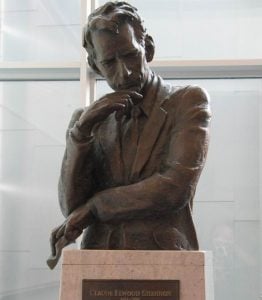 Read just about any description of research activity in the United States today, say from the National Science Foundation, and you are sure to find something about the importance of multidisciplinary or interdisciplinary work. The idea that people need to work together in teams and across traditional boundaries has become dogma in research communities, and casting one’s work in an interdisciplinary light has become all but required for obtaining research funding. Of course, I am all for people working together in teams when that makes sense, and for not letting boundaries get in the way of good work and collaboration. But, the emphasis on interdisciplinary work that has become so prevalent in recent years has gotten me to wonder – what makes an academic discipline, anyway? And who gets to decide?
Read just about any description of research activity in the United States today, say from the National Science Foundation, and you are sure to find something about the importance of multidisciplinary or interdisciplinary work. The idea that people need to work together in teams and across traditional boundaries has become dogma in research communities, and casting one’s work in an interdisciplinary light has become all but required for obtaining research funding. Of course, I am all for people working together in teams when that makes sense, and for not letting boundaries get in the way of good work and collaboration. But, the emphasis on interdisciplinary work that has become so prevalent in recent years has gotten me to wonder – what makes an academic discipline, anyway? And who gets to decide?